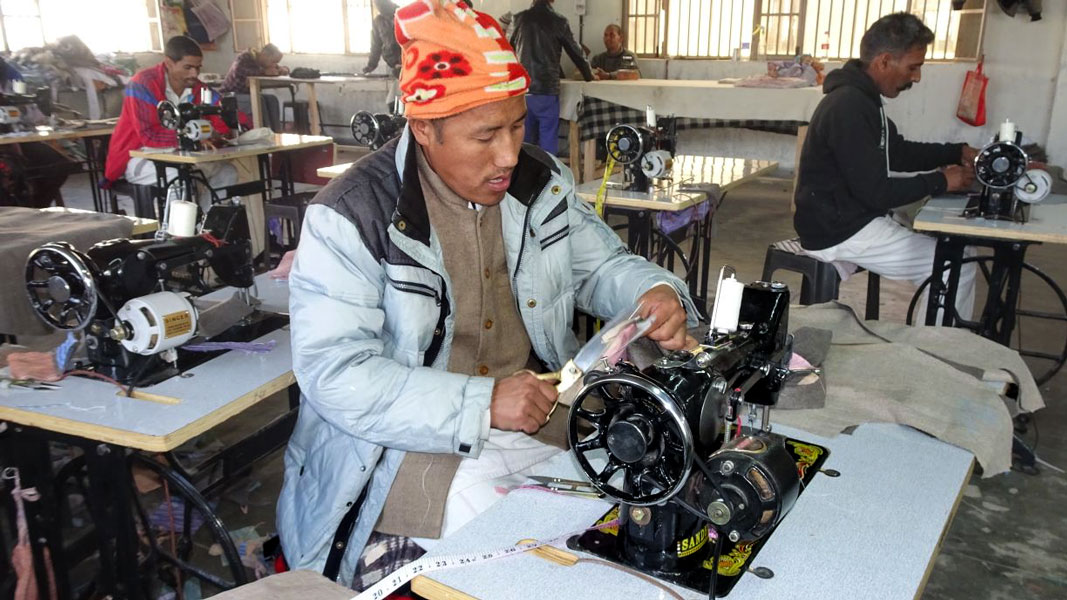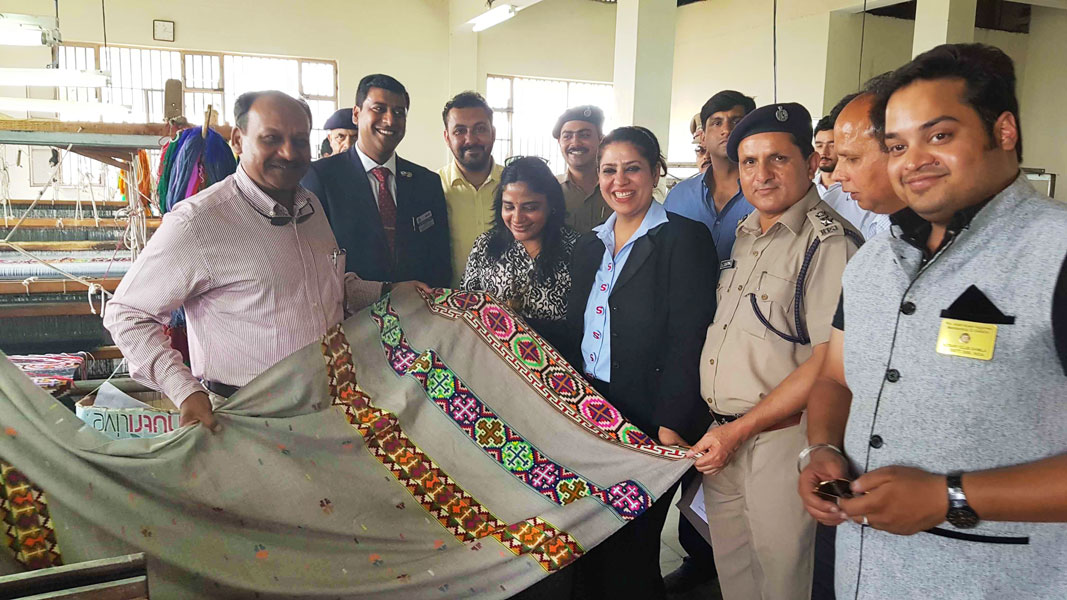What do the inmates of the Central Model Jail Kanda, Shimla, find in sewing a flower, stitching a button, fixing a loose hem or putting together patches for a quilt? “Calmness and hope,” says Pramod, a 32-year-old convict serving a life sentence here. A tailor by profession, he now has a certificate of specialisation in tailoring and design, all thanks to the Rotary Singer Sewing Centre that was inaugurated in June 2017 by Somesh Goel, Director General of Police – Prisons and Alpana Sarna, Deputy General Manager – HR, CSR and Advertising, Singer India.

Rotary’s partnership with Singer India has been providing decent livelihood to many families across India, says Manu Aggarwal, past president of RC Shimla, D 3080. “Initially, we wanted to start a vocational training centre at a home for destitutes in Shimla. But setting up one inside the prison seemed to be a better idea. It could help reform the inmates and ease their transition back into the community.”
I used to slit throats… now I am sewing flowers and leaves with a needle.
— Maan Bhadur, a trainee.
With 22 sewing machines (seven designer machines included) and a special training programme from Singer India, the Rotary-Singer Ek Nayi Pehchan Centre, housed inside the prison, has already scored a tie-up with the Himachal Khadi Yog and an independent designer. “We are already into production,” says Aggarwal.
The Jail Superintendent Sushil Thakur says that the vocation helps the inmates channel their aggression into positive energy. Currently, the scheme is training 35 prisoners each of whom earns about Rs 3,000 a month by “sewing clothes and embroidering cushions.” They work for 6–8 hours a day which helps them “pass their time with ease and restores a sense of identity and dignity.” While most inmates joined the programme for the money, “the real reward of sewing is visible on their faces when they completed stitching their first kurta-pajama set. They were amazed by their own capabilities,” says Thakur.

Maan Bhadur, convicted for murder, has this to say: “To cut a long story short, I used to slit throats… now I am sewing flowers and leaves with a needle.” Creating good embroidery that can sell requires concentration, patience and dedication; it cannot be rushed and pushed, he explains, adding, “I never thought that I would bend down to anything. But “embroidery ne jhuka diya and it is immensely satisfying.”
Sab purani baton ko bhul kar master ji ban na hai hamey aur silayi ki dukan kolni hai.
— Sham Lal serving his final year in the prison.
Ratan Chand, an ex-forest department official, facing a 7-year sentence for corruption, says, “When I step into the tailoring class, my mind steps out of the prison. Inside the cell, one can easily feel dejected and useless; but this class makes you very creative.” For Sham Lal (64), who is serving his final year, learning to stitch the pajama, kurta and other garments is definitely going to come handy. “Sab purani baaton ko bhul kar master ji banna hai hamey aur silai ki dukan kholni hai (I want to forget my past and start a tailoring shop),” he says.
“We are working with men whom you wouldn’t be able to imagine as tailors,” says Aggarwal, “but then they sit down and stitch only to find peace and we hope that they find it.”






